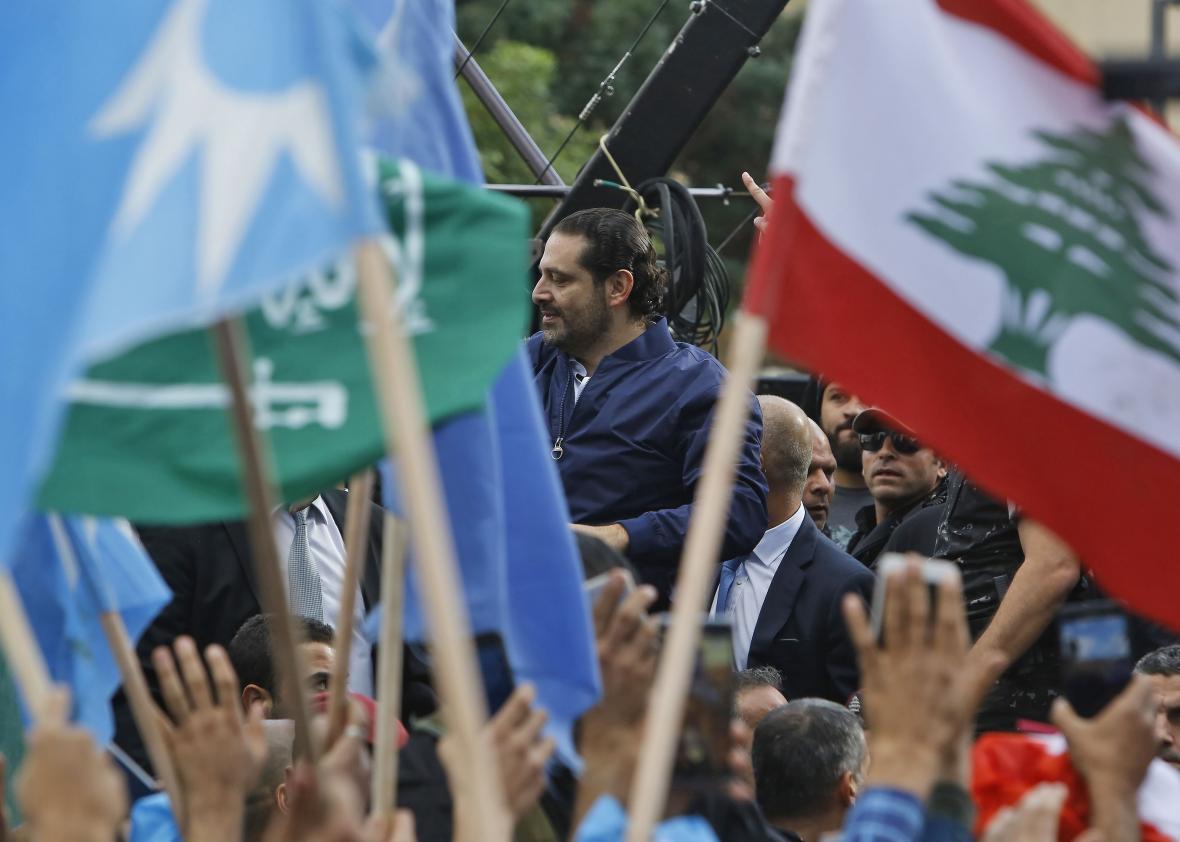Lebanese Prime Minister Saad al-Hariri has returned home and withdrawn his resignation, ending a nearly three-week national emergency.
Hariri had unexpectedly resigned on Nov. 4 during a trip to Saudi Arabia, citing threats against his life and decrying Iranian influence. It was widely assumed that the kingdom’s leaders, namely the increasingly assertive Crown Prince Mohammad Bin Salman, had pressured him to step aside. Hariri is a dual Saudi-Lebanese civilian and ally of Riyadh, but his patrons have been increasingly frustrated with him over his cooperation with Iran-backed Hezbollah. When Hariri didn’t return home and was out of touch with officials back in Beirut, Lebanese officials accused Saudi Arabia of detaining him. Both the Saudis and Hariri deny that this is what was happening.
After two mysterious weeks in Saudi Arabia, Hariri flew to France earlier this week, where he met with President Emmanuel Macron, before heading home. Lebanese President Michael Aoun had never formally accepted Hariri’s resignation, given the weird circumstances, and Wednesday the two agreed to indefinitely postpone it to allow for more dialogue.
The episode set Lebanon teetering on the edge of crisis, and this dramatic reversal of events should restore stability, by the standards of Lebanese politics anyway. What it means for Saudi Arabia is less clear. In his dealings with Hezbollah, Hariri may now be more hemmed in, but it also looks like the Saudis, who had accused the Lebanese government of waging war against them by failing to curb aggression by Hezbollah, are backing down.
If the kingdom did miscalculate, it may be partly the Trump administration’s fault. Trump has given his full backing to the Saudi government and the crown prince in particular, and Trump seemed to have swallowed the Saudis’ Iran-centric worldview hook, line, and sinker during his recent visit to Riyadh. The Lebanon intervention came amid other moves by the prince, including the arrest of several members of his family on corruption charges and an escalation of the brutal and disastrous war in Yemen. The Washington Post reported last week that “some U.S. and foreign officials worry that strong support for Saudi Arabia by President Trump and presidential son-in-law and adviser Jared Kushner may have helped motivate Riyadh to overplay its hand.” Kushner made a personal visit to Saudi Arabia last month and reportedly stayed up until 4 a.m. several nights with the prince discussing strategy.
Unfortunately for the Saudis, America’s ruling family doesn’t have the same level of control over its country’s foreign policy. The State Department, Pentagon, and CIA all reportedly expressed alarm that the prince was behaving recklessly. Secretary of State Rex Tillerson warned all parties against “using Lebanon as a venue for proxy conflicts or in any manner contributing to instability in that country.”
(One might hope that the U.S. national security establishment would apply a bit more pressure on the Saudis to halt the U.S.-backed war that’s killing thousands of Yemeni civilians and has the country on the brink of an epochal famine.)
This isn’t the first time this has happened. Trump personally backed the Saudi-led blockade on Qatar last summer, but the State and Defense departments remained neutral on the conflict—Qatar hosts a major U.S. military base—and there was little actually change in U.S. policy.
To be fair to the crown prince, U.S. foreign policy can be pretty inscrutable these days even for those of us in Washington. I can only imagine how confusing it appears from Riyadh.
